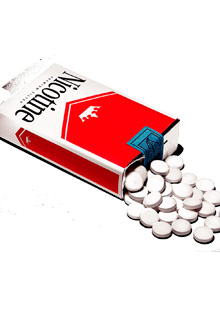Toxic Substances That Could Save Your Life

Photo: Studio D
They make up a medical most-wanted list: The substances below are notorious for the harm they cause. But lately scientists have been seeing good sides in these bad guys.
Thalidomide Rap: In the early 1960s, doctors prescribed it to relieve morning sickness—until they realized it triggered severe birth defects.
Reformed: Two years ago, the FDA gave a thumbs-up to thalidomide as a treatment for multiple myeloma, a bone marrow cancer. Scientists believe it prevents the growth of new blood vessels that sustain tumors. Thalidomide has also proved useful in treating leprosy—it clears up painful lesions caused by the disease.
Carbon Monoxide
Rap: This deadly gas results from combustion—think car engines, furnaces, fires—and it's called the silent killer because it has no smell or taste to warn you. Carbon monoxide is responsible for an estimated 15,000 emergency room visits and 500 unintentional deaths in the United States each year.
Reformed: A recent study suggests this poisonous gas may someday help alleviate the symptoms of multiple sclerosis. Researchers in Portugal found that carbon monoxide slowed the progression of multiple sclerosis in mice. It even seemed to ease some of the paralysis. The researchers speculate that the gas protects nerves from immune cell attack; this could also allow damaged nerves to heal. (Obviously, this is not a treatment to try on your own.)
H. Pylori
Rap: H. pylori is a bacterium that thrives in the stomach and, when left untreated, can cause peptic ulcers and stomach cancer. Thanks to improved sanitation and antibiotics, the bug now appears in only 20 to 30 percent of the general population—a drop from 70 to 80 percent—which some scientists say may explain why we've also seen a decline in peptic ulcers and stomach cancer over the past several decades.
Reformed: Doctors at New York University have found that the bacterium may protect us from asthma and allergies. After evaluating nearly 8,000 adults, they concluded that acquiring H. pylori as a child appeared to reduce the risk of childhood-onset asthma by 37 percent and the risk of allergies by 45 percent. Further research is necessary to confirm their finding.
Nicotine
Rap: It's the toxic substance that helps make tobacco addictive.
Reformed: Scientists at the Parkinson's Institute in Sunnyvale, California, found that in monkeys, nicotine seems to not only slow the progression of Parkinson's disease but can halve the incidence of the debilitating side effects—tremors, jerky movements—caused by the drug levodopa. And preliminary studies have shown that nicotine or a nicotine-like drug can improve attention and cognitive function in patients with mild memory loss; it may even slow Alzheimer's. Researchers are looking into developing drugs that target the same brain receptors as nicotine minus the side effects.



